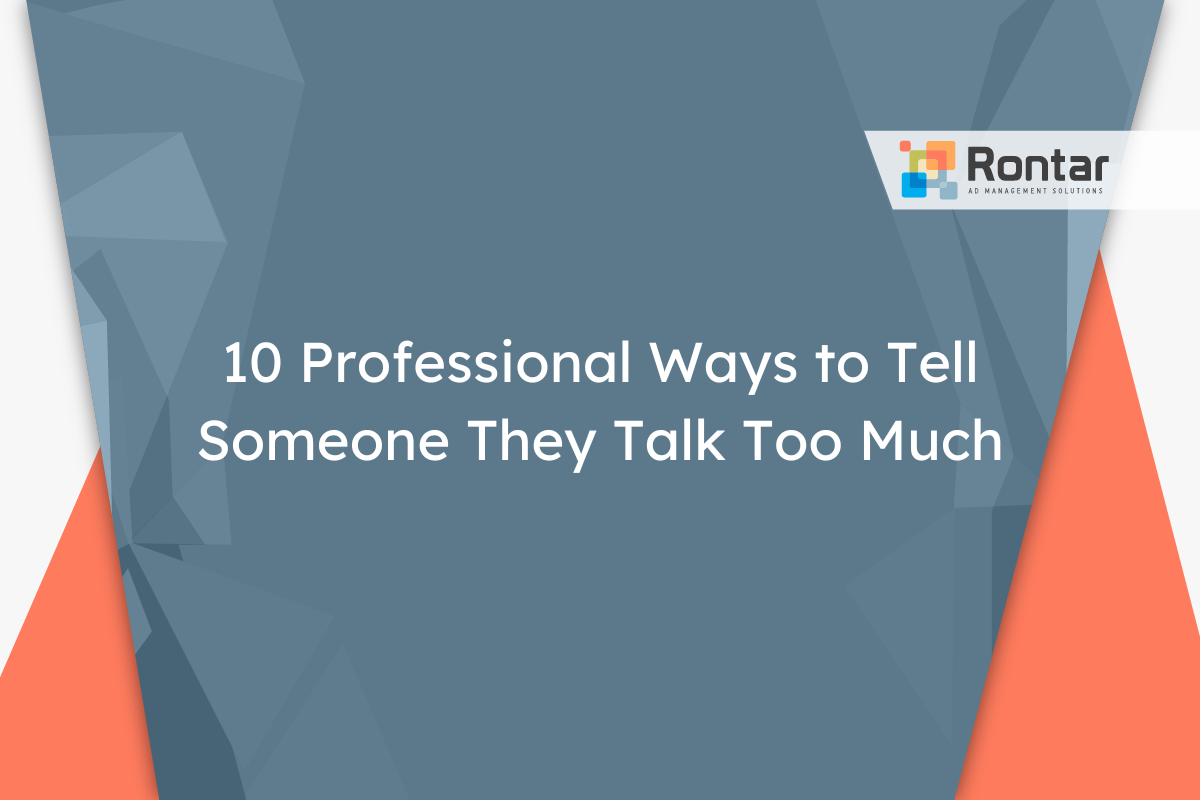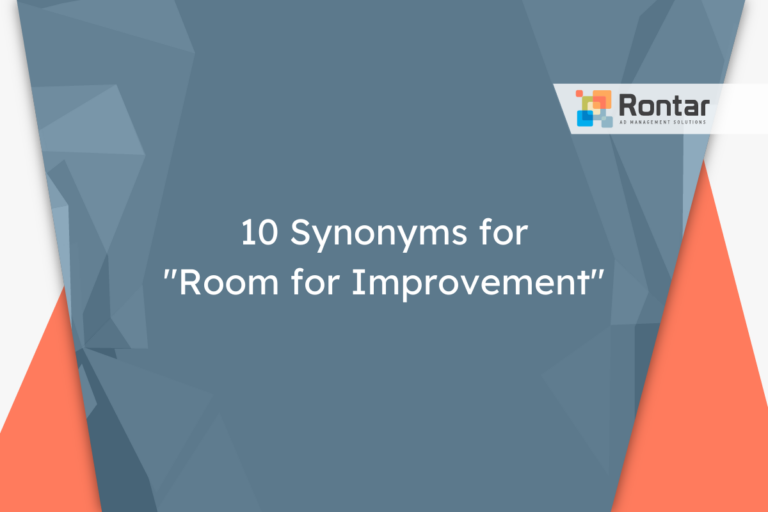10 Professional Ways to Tell Someone They Talk Too Much

Effective communication is essential in the workplace, especially when addressing someone who tends to talk excessively. The wrong approach can easily offend or discourage them.
This article offers ten professional and polite ways to gently steer conversations and ensure productivity. These alternatives will help maintain respect and understanding in your professional communications.
10 Professional Ways to Tell Someone They Talk Too Much
Finding the right words to address someone’s tendency to over-communicate without causing offense is key in a professional setting. Here are ten respectful alternatives to directly saying “You talk too much”.
- Let’s keep the focus on the main agenda.
- Could we concentrate on the core topics?
- I appreciate your insights, but let’s prioritize succinctness.
- It’s important we allow time for all voices to be heard.
- Your points are great; perhaps we can be more concise?
- Can we direct our discussion more towards the outlined objectives?
- Let’s ensure our dialogue is as efficient as possible.
- Might we streamline our conversation to respect everyone’s time?
- I value your input, but let’s keep our comments more focused.
- Would it be possible to summarize to keep the discussion on track?
1. Let’s keep the focus on the main agenda.
This alternative is fitting in situations where meetings are drifting off-topic due to one or more participants. It is best used with recipients who might not realize they are oversharing. The communication medium best suited for this message is during group meetings or written form, like emails, to remain professional and polite. It subtly brings the conversation back without pinpointing anyone’s fault directly.
Example:
Dear Team,
As we dive into today's agenda, let's keep the focus on the main agenda to make the most of our time together. Looking forward to a productive meeting.
Best regards,
Morgan
2. Could we concentrate on the core topics?
Useful in meetings where the discussion begins to stray, this phrase is a polite way to guide the conversation back on track. It’s especially effective in a professional environment where multiple topics are being discussed, and there’s limited time. Ideal for both verbal meetings and email communications, it encourages focus without being dismissive.
Example:
Hello Everyone,
As we navigate through our agenda, could we concentrate on the core topics? This approach will help us cover all essential aspects effectively.
Warm regards,
Morgan
3. I appreciate your insights, but let’s prioritize succinctness.
This phrase is best for individuals who provide valuable input but tend to go off into lengthy explanations. It’s a polite yet direct way to ask for brevity in both formal and informal settings. Suitable for email or in-person conversations, it affirms the speaker’s contributions while encouraging conciseness.
Example:
Dear Colleagues,
Thank you for your contributions to our project's development. I appreciate your insights, but let's prioritize succinctness to ensure clarity and efficiency in our discussions.
Best,
Morgan
4. It’s important we allow time for all voices to be heard.
This alternative is ideal in meetings where not all participants are getting a chance to speak due to one or more individuals dominating the conversation. It’s a professional and polite way to remind everyone of the importance of inclusivity. Suitable for both face-to-face and virtual meetings, this message promotes a more balanced dialogue.
Example:
Team,
As we continue with our meeting, it’s important we allow time for all voices to be heard. Let’s make sure every participant has the opportunity to contribute.
Thank you,
Morgan
5. Your points are great; perhaps we can be more concise?
This phrase is a polite compliment that also serves as a nudge towards brevity. It works well in professional contexts where ideas are being discussed at length, possibly deterring from the main objectives. It’s particularly effective in one-on-one emails or during smaller, more intimate meetings where you aim to foster a constructive discussion without discouraging participation.
Example:
Dear Alex,
I've been reflecting on our recent discussion. Your points are great; perhaps we can be more concise? This way, we can streamline our conversation and action points moving forward.
Best wishes,
Morgan
6. Can we direct our discussion more towards the outlined objectives?
This alternative is a professional and polite way to steer a meeting back to its main goals. It’s particularly useful in situations where the conversation has become too broad and needs refocusing. Suitable for use in both meetings and written communications, it helps keep the discussion productive and objective-oriented without dismissing the input already given.
Example:
Hello Team,
In our upcoming discussion, can we direct our discussion more towards the outlined objectives? This will help us stay aligned with our goals.
Thanks,
Morgan
7. Let’s ensure our dialogue is as efficient as possible.
This phrase serves as a gentle reminder for efficiency in conversation, suggesting that time is valuable. It’s a professional way to encourage conciseness in discussions without undermining the importance of the dialogue itself. Appropriate for both in-person meetings and emails, it’s geared towards making the most out of the allocated time.
Example:
Dear Contributors,
As we gather our thoughts for the meeting, let's ensure our dialogue is as efficient as possible. A focused discussion will benefit us all.
Kindly,
Morgan
8. Might we streamline our conversation to respect everyone’s time?
This alternative is a polite and professional way to remind everyone of the value of time, promoting a more organized discussion. It’s especially relevant in settings where meetings tend to overrun due to extensive dialogues. Suitable for leading meetings or guiding team discussions to ensure everyone’s time is considered and valued.
Example:
Team,
As we prepare for our session, might we streamline our conversation to respect everyone's time? Efficient dialogue will enable us to cover more ground in less time.
Regards,
Morgan
9. I value your input, but let’s keep our comments more focused.
This expression is a professional and polite approach to maintaining the focus of discussions. It works well in a variety of settings, including team meetings or when providing feedback. It’s suitable for occasions when discussions start to veer off-topic, reminding everyone to stay aligned with the meeting’s objectives.
Example:
Dear Mark,
Your insights during our meetings are always valued. I value your input, but let's keep our comments more focused on our project goals to ensure productive outcomes.
Sincerely,
Morgan
10. Would it be possible to summarize to keep the discussion on track?
When discussions become lengthy and detailed, this phrase can help bring everything back to focus. It’s a polite request that encourages summarizing and clarity, very fitting in professional and formal settings. Ideal for wrapping up discussions or when trying to conclude a meeting that has covered extensive ground.
Example:
Hello Everyone,
As we move through our agenda, would it be possible to summarize to keep the discussion on track? Concise summaries will help us maintain our focus and cover all necessary points effectively.
Thank you,
Morgan
Final Thoughts
Choosing how to tell someone they talk too much is important for keeping a positive atmosphere at work. The key is to be polite and professional, focusing on keeping conversations productive. By using the phrases provided, you can guide discussions effectively without hurting feelings.






